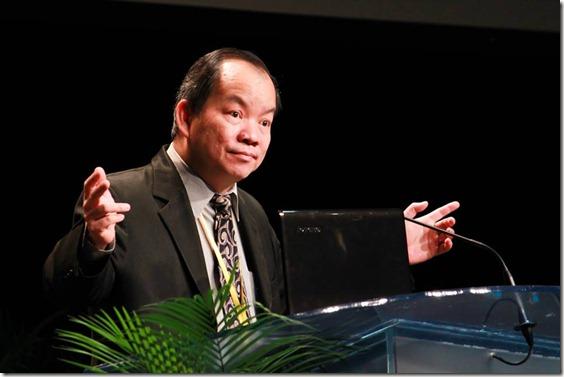Dr. John Ong, the president of the Malaysia Baptist Theological Seminary, spoke about the manner in which we should look at the Israeli-Palestinian grudge, from a perspective of reconciliation theological practice in a theological webinar held by the seminary.
Themed "Looking at the Long-standing Israeli-Palestinian Grudge from Historical and Reconciliation Theology Perspectives", the webinar was held on Jun 15th to discuss the Israeli-Palestinian conflict from the perspectives of its history, the Jews, the Arabs, and trio-reconciliatory theology.
Dr. Ong said, "Churches should bring peace to the world, and this should be a testimony that churches bear. We should embody the Kingdom of Heaven in this torn world that is full of suffering, wars, and hatred. God's mission for the church is to enter this broken world and to mend it."
He explained that we could see violence in this world, within families, between peoples, and between nations. People sought to survive but were deprived of the most basic necessities; the earth, the ocean, the atmosphere, and all things in them faced serious crises; and some people were unable to achieve the most basic honor and dignity. These showed that there were serious problems appearing in God's good creation.
"God's creation is good, but very serious problems have emerged, that is, people stuck in sin cannot establish safe and peaceful societies on their own", said Dr. Ong.
Sin's damage was also manifested deep down in people's hearts: loneliness, shame, guilt, fear, anger, enmity, depression, despair, etc. Yet as the basic attribute of the triune God was love, he chose to heal the brokenness of man and the universe.
He continued that God works mainly through two strategies: He provides the gospel of Jesus Christ to the world with the promise of forgiveness of sin, the renewal of life, and eternal salvation; additionally, He provides family, workplace, religious bodies, and governments, to cater for the safety and prosperity of life. In the latter domain, the basic concern of this time was to serve your neighbors, to promote “shalom” among the different races in the world, and to be concerned for everyone's basic rights and welfare.
Ong stated that the conflict between the two peoples in the holy land was a great challenge to both Jewish and Palestinian Christians. To many, it was an act of betrayal to meet the other side. Sadly, many Christians also held this view.
Expanding on this, Dr. Ong explained, a theology of reconciliation must be formed and be adopted by Israelis and Palestinians who are involved in the conflict. While theology could not be removed from the context of the conflict, the seed of peace must be planted and grow in the soils of the conflicts.
He reminded the participants that we should not simply hear the narrative of one side and that in trying to bridge the gap between the two opposing sides, we needed to be self-critical, by evaluating and criticizing our own narratives rather than telling others how their narratives were wrong.
The president also said that we should cultivate a sense of empathy with the opposite narrative. Although we might never agree with our enemies about the past, we could still come to understand more about the way they thought and see them as human beings created in the image of God. The Messianic Jews' and Palestinian Christians' experience with the gospel, the cross of Jesus, and the coming of His kingdom, would be very helpful.
"Reconciliation is at the core of the gospel", Dr. Ong added. "Reconciliation is a complete and sufficient work that God has freely initiated and achieved for His people. As Christians, our differences in ethnic, political, or theological views should not be excuses that prevent us from being spiritually and emotionally united. Genuine repentance and commitment to forgiveness are needed. It is not a one-time event, but a promise that needs a prolonged process. Only when we recognize our new identity - the people of God's kingdom - can we be united. The greatest challenges and obstacles are not to be overcome by ourselves but have already been conquered by Jesus on the cross, and neither Arabs nor Israelis should try to overcome them with their own strength.
"If anyone is in Christ, he is a new creation. This new creation is not only international, trans-cultural, across race and history, but more importantly, whether being Jews or non-Jews and whatever difference in color or background, these matter no more, as they all come to worship God."
- Translated by Grace Song












